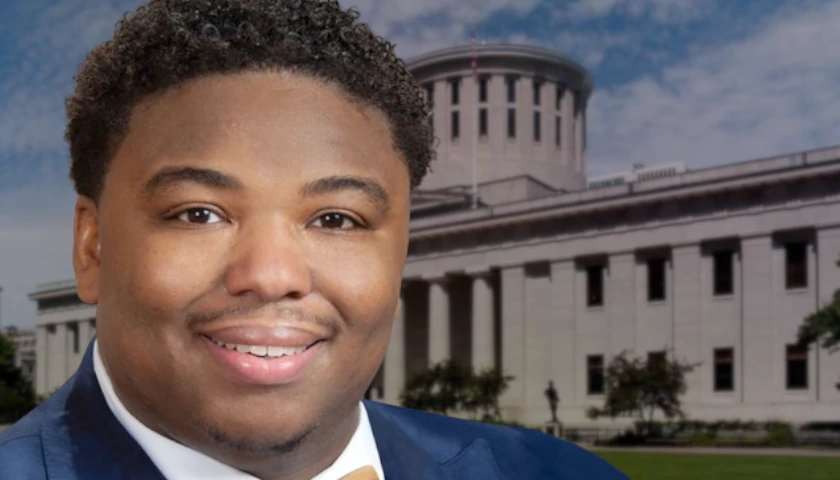by J.D. Davidson
An Ohio lawmaker is looking for support to return land in western Ohio to formerly enslaved people denied to them during the Civil War.
In a letter to Republican Gov. Mike DeWine and other state agencies and elected officials, Rep. Dontavius Jarrells, D-Columbus, wants the governor to support exploring all options to address what Jarrells calls the historical injustice faced by the Randolph Freedpeople.
“To form a more perfect union, we, as responsible citizens and leaders, must carry forward the dream of our Founding Fathers and push our great country and its people forward,” Jarrells wrote. “This often requires us to acknowledge our failures, learn from them, and continue forging ahead together. Our greatest mistake, America’s original sin, has been and remains – the enduring legacy of slavery. However, we occasionally have the chance to eradicate some of the roots of racism and correct history’s greatest wrongs. I find myself at the brink of such an opportunity, and I ask for your support.”
Jarrells (pictured above) has a news conference planned for Tuesday that is expected to include several descendants of the Randolph Freedpeople and outline ways they believe Ohio can return state-owned land to the descendants.
According to information from the Piqua Public Library, 400 people were freed from slavery in Virginia by the 1819 will of John Randolph, which read, “I give and bequeath to all my slaves their freedom, heartily regretting that I have ever been the owner of one.”
Randolph’s family contested the will and fought to keep the former slaves as their property.
Judge William Leigh, lawyer Francis Scott Key, and Bishop Meade were able to enforce the will in 1846, freeing 383 people. Leigh bought 3,200 acres in Mercer County, Ohio. He set up transportation for the freed people to Mercer County, where all former slaves older than 40 were to receive 10 acres.
Before the former slaves arrived, the town in Mercer County passed a resolution that read, “Resolved. That will not live among Negroes, as we have settled here first, we have fully determined that we will resist the settlement of Blacks and mulattoes in this country to the full extent of our means, the bayonet not excepted.”
The freed slaves were met by a mob of angry white residents in Mercer County, and the freed people headed south to set up small towns along the Miami Erie Canal after being denied the land.
“Considering this all happened in the years leading up to the Civil War, with a nation divided, the freedom promised to slaves in the North was anything but guaranteed,” Jarrells said in his letter. “How Ohio handled this situation is a prime example. Despite being given their freedom, Ohio turned its back on the Randolph Freedpeople. Now is the time for Ohio to acknowledge its failure, learn from it, and move forward.”
– – –
An Ohio native, J.D. Davidson is a veteran journalist with more than 30 years of experience in newspapers in Ohio, Georgia, Alabama and Texas. He has served as a reporter, editor, managing editor and publisher. Davidson is a regional editor for The Center Square.









